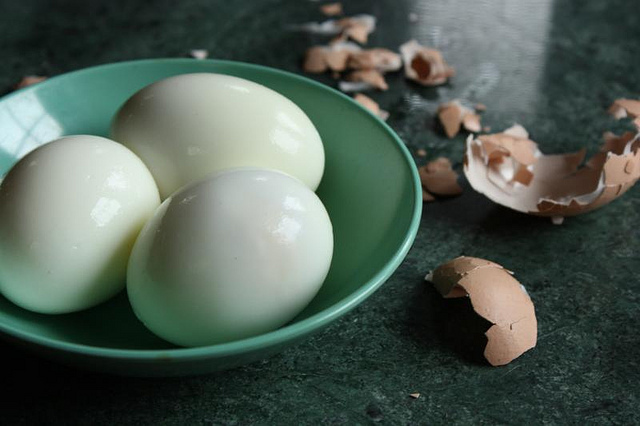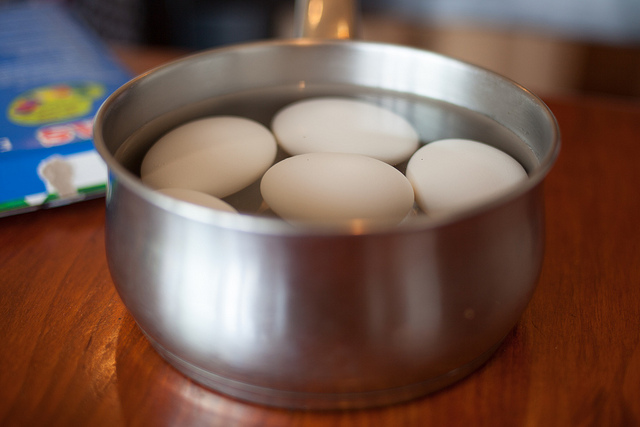Hard boiling an egg is a very simple process, but perfectly hard boiling an egg every single time is a little bit less simple. This guide will help you make perfect hard boiled eggs every time.

How to Hard Boil an Egg
Bring your eggs out of the fridge before you get started. You will want them as close to room temperature as possible. While this isn’t terribly important, it does help ensure the eggs don’t crack when you boil them. A cracked shell during cooking will result in a rubbery egg.

Start out with a large pot filled with water. You will need a large enough pot that your eggs can be rested at the surface of the water without being stacked one upon another. See the picture to the right for an example.
With your eggs already placed in the water, bring your pot to a boil. As soon as the water reaches a proper rapid boil, remove the pot from the heat source and cover it with a lid.
How Long to Cook Hard Boiled Eggs?
Once you have removed your eggs from the heat source you will leave them covered for between fifteen and twenty minutes, depending on the size of the egg. Longer for larger.
You should set a timer, because as soon as it hits the mark you choose based on the size of your egg, you must drain the hot water and cover the eggs in cool water. Leave the eggs sitting in cool water for a few more minutes.
The cool water serves two purposes: it prevents your eggs from overcooking, and it helps build up steam between the egg-white and the shell, which will make peeling the eggs easier.
Tips for Making Hard Boiled Eggs
- Be careful about overcooking the eggs or leaving them unattended for too long. You can end up with a less than palatable film around the yolk.
- When peeling the shells from your hard boiled eggs you should always start from the larger end. Because of the way the eggs would have cooked, there will be a small air bubble to assist with de-shelling your eggs.
- Also consider de-shelling the eggs under cool running water. It helps get rid of any little excess pieces.